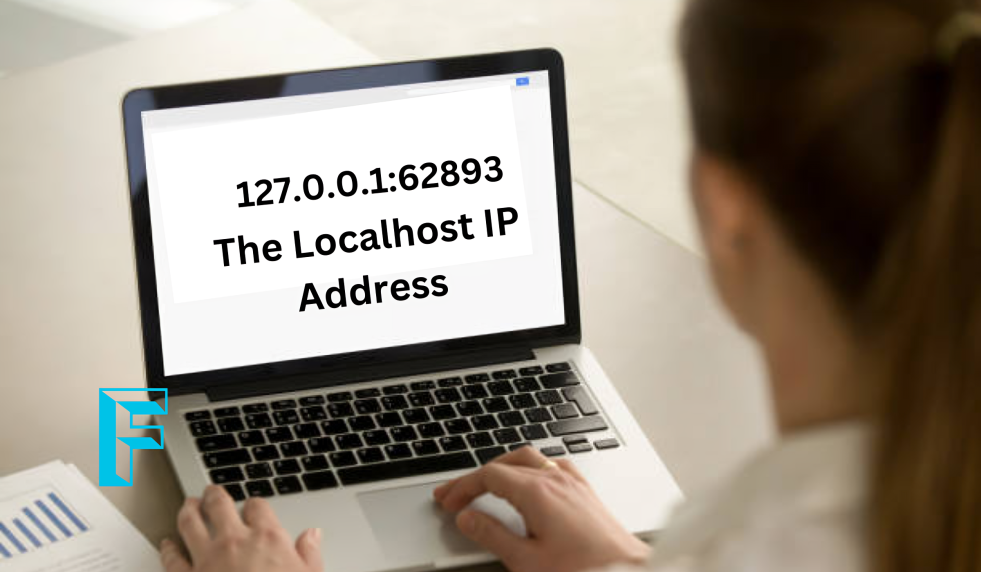1. Introduction
1.1 What is an IP Address?
An ip address 127.0.0.1:62893, short for Internet Protocol address, is a unique identifier assigned to every device connected to a network. It allows devices to communicate with each other by directing data to the correct destination.
1.2 Importance of IP Addresses in Networking
IP addresses are fundamental to the functioning of the internet and local networks. They ensure that data packets find their way from one device to another, enabling everything from simple file transfers to complex web applications.
1.3 Overview of 127.0.0.1:62893
IP address 127.0.0.1 is commonly known as “localhost” and is used to refer to the computer you are currently using. When combined with port 62893, it is often used for local testing and development purposes.
2. Understanding IP Address 127.0.0.1
2.1 Definition of Localhost
Localhost is a hostname that refers to the local machine. It is mapped to the IP address 127.0.0.1 in most systems, allowing developers to test applications without needing to connect to an external network.
2.2 Significance of 127.0.0.1 in Networking
The IP address 127.0.0.1 is reserved for loopback functionality. This means that any network requests sent to 127.0.0.1 are looped back to the same device, effectively simulating network activity without external connections.
2.3 Common Use Cases of 127.0.0.1
127.0.0.1 is widely used in software development for testing and debugging purposes. By running a server on this address, developers can emulate network conditions and ensure their applications work as expected.
3. Ports in Networking
3.1 What is a Port?
A port acts as a numerical identifier in networking, specifying a particular channel for network traffic on a device. Ports organize and direct data flow, ensuring it reaches the correct application.
3.2 How Ports Work with IP Addresses
Ports and IP addresses work together to direct data to specific applications or services running on a device. For instance, while 127.0.0.1 sends data to the local machine, a port number like 62893 specifies which application should receive the data.
3.3 Introduction to Port 62893
Port 62893 serves as an arbitrary port number commonly used in development environments. Developers select such ports to avoid conflicts with well-known port numbers reserved for standard services, such as HTTP (port 80) or HTTPS (port 443).
4. Practical Applications of IP Address 127.0.0.1:62893
4.1 Use of Localhost in Development
Developers find localhost invaluable in software development. By running applications on 127.0.0.1, they can test features and fix bugs without deploying to a live environment. This approach ensures that everything works correctly before going public.
4.2 Testing Web Applications
Web developers often use 127.0.0.1:62893 to test web applications. This setup allows them to simulate real-world network conditions, monitor performance, and identify issues in a controlled environment.
4.3 Debugging and Troubleshooting
Debugging with localhost proves efficient because it eliminates external variables. By focusing on the application itself, developers can quickly pinpoint and resolve issues.
5. Security Aspects of Using 127.0.0.1:62893
5.1 Understanding Security Risks
Although using localhost is generally safe, there are, however, potential risks if it is misconfigured. For instance, if a local server is inadvertently exposed to external networks, it could consequently become a target for attacks.
5.2 Best Practices for Secure Development
In order to mitigate these risks, developers should adhere to best practices. Specifically, they should limit access to localhost, implement strong authentication methods, and regularly update software to patch any vulnerabilities.
5.3 Monitoring and Logging for 127.0.0.1:62893
Moreover, implementing logging and monitoring on localhost environments is essential. Such measures help to track unusual activity and diagnose issues, which is crucial for maintaining security and ensuring the overall integrity of the development process.
8. Troubleshooting Common Issues
8.1 Common Problems with Localhost
To begin with, some common issues with localhost include port conflicts, misconfigurations, and firewall restrictions. These problems can significantly disrupt the development process and, therefore, need to be addressed promptly.
8.2 Resolving Port Conflicts
In the case of port conflicts, they occur when multiple applications attempt to use the same port. To resolve these conflicts, developers can either assign unique ports to each application or use tools to identify and free up occupied ports.
8.3 Tools and Techniques for Debugging
Furthermore, various tools are available to assist with debugging localhost issues, such as network analyzers and log monitoring tools. These tools not only help identify the root cause of problems but also provide effective solutions.
9. Future of Networking and IP Addressing
9.1 IPv6 and Future Developments
As the internet continues to evolve, the transition to IPv6 will undoubtedly bring significant changes to networking. Although localhost will still play a role, new addressing schemes and port management practices will also emerge.
9.2 Evolution of Port Usage
Moreover, the use of ports in networking is evolving as well. With the rise of containerization and microservices, port management is becoming increasingly complex, thereby requiring new strategies and tools.
9.3 Predictions for Localhost Applications
Looking ahead, the future of localhost applications appears promising, with more sophisticated tools and environments emerging to support complex development needs. As technology advances, localhost will, therefore, continue to be a critical part of the development process.
.10. Conclusion
10.1 Summary of Key Points
To summarize, IP address 127.0.0.1:62893 is a crucial tool in software development, providing a safe and controlled environment for testing and debugging applications. Therefore, understanding its use and configuration is essential for developers.
10.2 Final Thoughts on 127.0.0.1:62893
In addition ip address 127.0.0.1:62893, the flexibility and security of using localhost with custom ports make it an indispensable part of modern development workflows. By adhering to best practices, developers can therefore maximize the benefits of this setup.
10.3 Call to Action or Further Reading Suggestions
For those looking to deepen their understanding of networking and localhost, it is highly recommended to explore additional resources or experiment with different configurations in your development environment.











